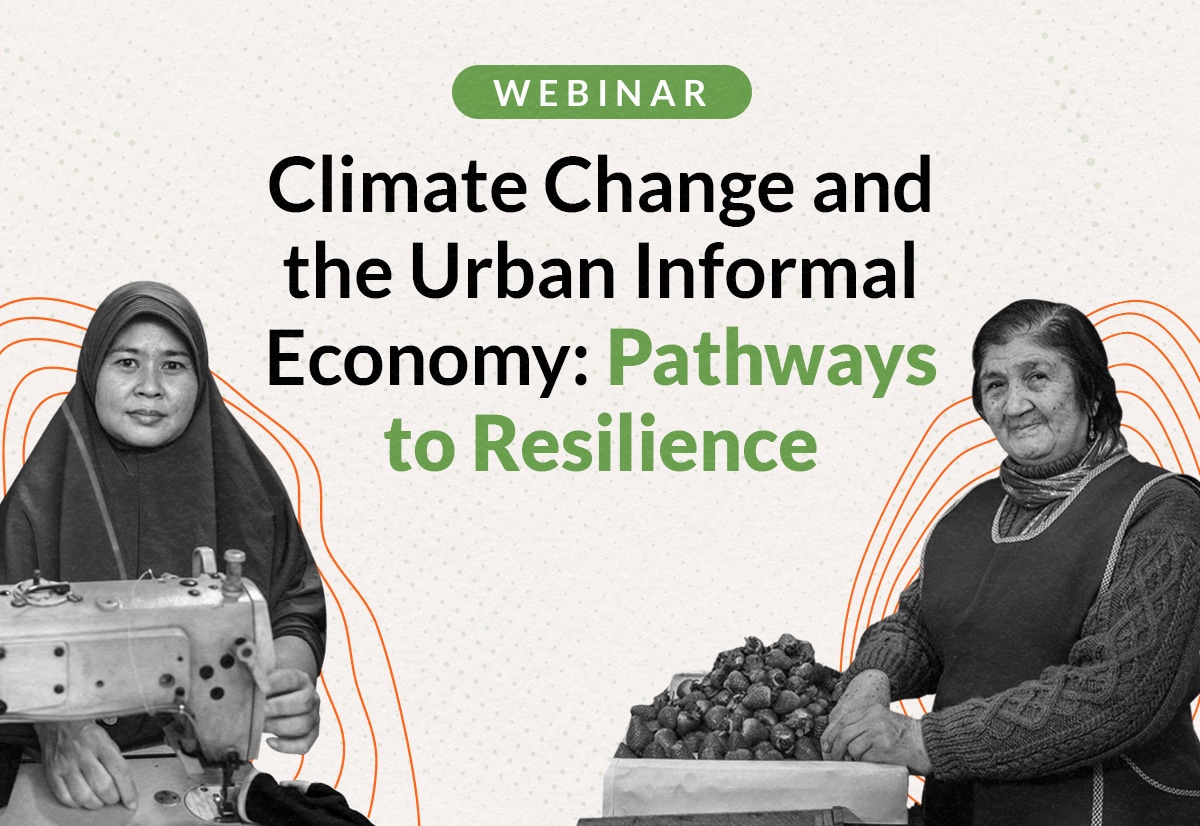Climate Change and the Urban Informal Economy: Pathways to Resilience
-
November 5, 20258:00am - 9:30am Canada (EST), Peru (UTC+5) | 10:00am - 11:30am Brazil (UTC+3) | 6:30pm - 8:00pm India (IST)
- Online

Despite contributing minimally to climate change, those living and working informally are on the frontlines of its impacts. In the second part of our webinar series on climate change and the urban informal economy, we will focus on strategies to build resilience through urban infrastructure, climate governance, and financing.
On November 5 at 8 am EST, experts will share three innovative cases:
Each case exemplifies a co-created process to build resilience with workers in informal employment and people living in slum communities. Access to finance is critical to these efforts. The final input will analyze the extent to which urban poor communities currently access climate finance and identify ways to increase this access. The webinar will close with an interactive discussion on scaling grassroots adaptation efforts.
Don’t miss this session just days ahead of COP 30, where participants will also share perspectives and aspirations for the forthcoming IPCC Special Report on Climate Change and Cities.
The webinar will be moderated by Caroline Skinner (Director, Urban Policies Programme, WIEGO).
Register Now(this link opens in new window)